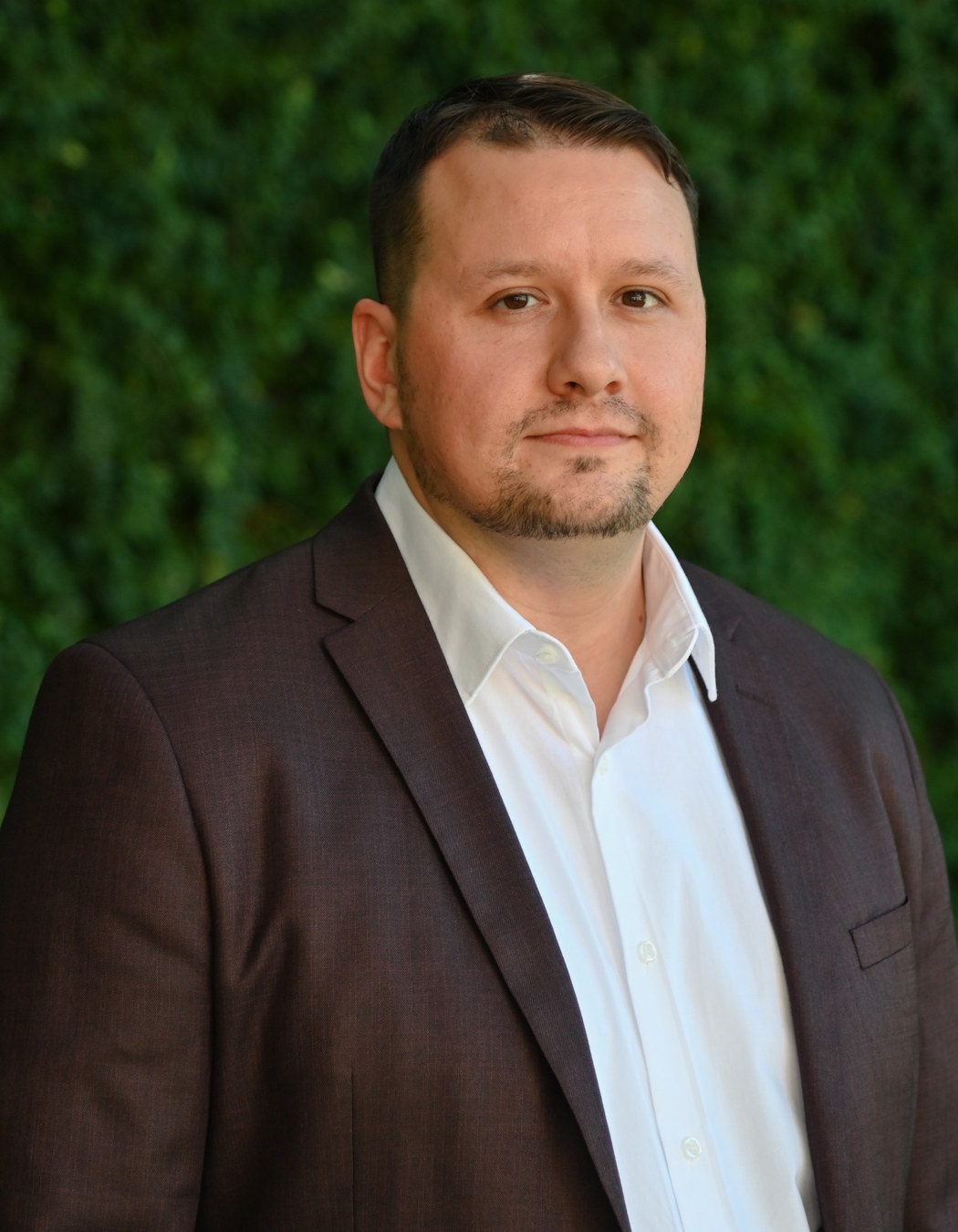
Find Out More
Health Services Policy and Management (HSPM) is an interdisciplinary field concerned with the promotion of personal and public health through planning, organizing, directing, controlling, coordinating and evaluating health services.
November 3, 2025 | Erin Bluvas, bluvase@sc.edu
Richard Strater has been an Arnold School staff member since 2020, but that’s not the only reason why the Master of Public Health (MPH) degree he’s currently pursuing feels like coming full circle. Born in Florida, Strater’s family made the move to South Carolina when he had not yet reached his first birthday. It was 1995, and his father, Terrance, was going back to school, working toward his own MPH in the Arnold School’s Department of Health Promotion, Education, and Behavior.
“Because of our connection to the Arnold School, I’ve been part of a Gamecock family my entire life,” says Strater. “Growing up, I learned a lot about public health and health disparities as I observed my father educate community members on the impacts of food deserts and the importance of primary care in rural parts of South Carolina.”
After graduating from high school, Strater completed a bachelor’s degree in anthropology at USC before moving to Mexico to teach English for the Peace Corps. His return to Columbia overlapped with the height of the pandemic, and Strater jumped into the response efforts with a role at PASOs and the Center for Community Health Alignment (CCHA). He was already interested in the Center's’ central focus, community health workers (CHWs), thanks to a medical anthropology class he took as an undergrad.
“This introduction opened my eyes to how anthropologists and public health professionals work together to address health inequities through culturally and linguistically appropriate health programs and services,” Strater says. “One of the ways they do this is by working with CHWs to address social determinants of health in underserved areas. I saw this model firsthand when working with CHWs during the pandemic.”

Strater’s collaborations with CHWs also showed him the importance of their work in Medicaid policy development and implementation. He decided to build on these interests by first completing a master’s in anthropology and then enrolling in the MPH in Health Services Policy and Management (HSPM) program, which has provided him with a broader skillset for conducting research that answers the how and why of health inequities and developing policy solutions to address these gaps.
Strater has already gained experience in these areas in his role as the Research and Communications Lead for CCHA. He also serves as a graduate research assistant for the South Carolina Institute of Medicine and Public Health and draws on the lessons learned from his time as a graduate research assistant working with HPEB senior research associate Carrie Draper on a FoodShare project during his first master’s program.
“We evaluated the ability of FoodShare sites across the state to scale up fresh fruit and vegetable distribution. This hands-on experience not only provided me with an opportunity to learn more about food insecurity across the Palmetto State, but it also gave me the chance to work with a mentor to study best practices for program implementation and potential policy options for addressing health disparities right in my backyard,” says Strater, who also found a mentor in HPEB adjunct associate professor Deborah Billings. “I’ve had the honor of guest lecturing in Debbie Billings’ qualitative methods course on some of the research I’ve conducted with CHWs, and she has been supportive of my public presentations of qualitative research and publishing articles on this work.”
After graduating with his second master’s degree, Strater hopes to complete a Ph.D. in health services and policy and then pursue a research and teaching career as a faculty member focusing on health economics, health policy, and mixed-methods research. For those considering a similar path, he recommends always keeping your “why” at top of mind.
“For me, this journey has been for improved public health and health care systems that employ CHWs,” Strater says. “Working with CHWs over the past six years has deeply shaped my perspective on health services and policy research. Having this direct work experience and involvement with advocacy groups in my community drives me to study what I have in the program.”